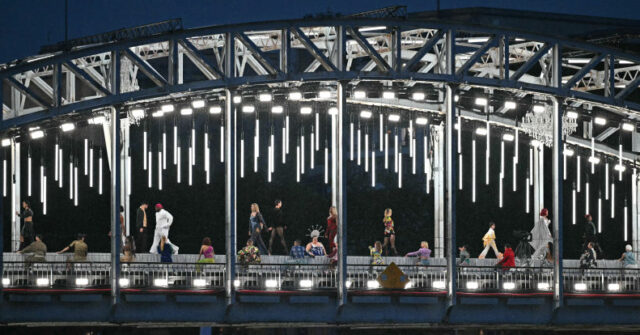France is making significant strides in addressing the issue of cyberbullying, specifically in relation to the ongoing controversy surrounding the 2024 Paris Olympics. Recently, seven individuals have been arrested for their involvement in making threats and harassing figures associated with the Games, particularly the artistic director of the highly scrutinized opening ceremony, Thomas Jolly. This ceremony has attracted widespread attention due to its explicit political and social themes, which critics have labeled as excessively progressive and disrespectful towards Christian values. The arrests encompass a diverse group, with six men in the age range of 22 to 79 years and one woman aged 57. According to sources within the investigation, some of these individuals are deemed to possess dangerous characteristics, one even identified by authorities as a “professional hate monger.”
The French authorities have made it clear that these arrests represent just the initial phase of a broader campaign against online harassment, with further actions expected in the future. Officials are determined to hold accountable those who target Jolly and others involved in the Olympics creative process. The situation has been compounded by a wave of vitriolic backlash against Jolly himself, who has reportedly faced both homophobic and antisemitic attacks in response to his leadership of the Olympic festivities. These threats and acts of cyberbullying not only impact the individuals involved but also pose a risk to the inclusive message that the Olympic event aims to promote.
The investigation into the alarming trend of hate speech aimed at the Paris Olympics has been led by key law enforcement agencies, including the National Center for the Fight against Online Hate (PNLH) and the Central Office for Combating Crimes Against Humanity and Hate Crimes (OCLCH). In fact, Jolly himself filed a complaint against the online abuse shortly after the opening ceremony occurred. Notably, the Mayor of Paris has publicly rallied behind Jolly, condemning the backlash as a reactionary response that would not hinder the city’s vision for the Olympics, demonstrating a strong political stance against the wave of negativity directed at the event.
The PNLH plays a crucial role in enforcing the French government’s initiatives aimed at combating hate and discrimination, particularly against the LGBTQ+ community. Established as part of President Emmanuel Macron’s broader campaign against anti-LGBT sentiments, the PNLH collaborates with various agencies focused on promoting equality and protecting marginalized groups. They aim to facilitate a national dialogue on inclusivity and acceptance, reaffirming the government’s commitment to counter the anti-LGBTphobia that prevails in certain segments of society.
Authorities highlight that the actions of those who engage in cyberbullying not only denote a societal issue but also have legal ramifications, with potential prison sentences and hefty fines awaiting those convicted of such misconduct. The Paris Prosecutor has articulated that the online harassment aimed at the Olympic creative team appears designed to instill fear and suppress expressions of inclusivity, reinforcing the critical need for law enforcement to step in against such threats.
With the preliminary hearings for the seven arrested individuals set for March 2025, the broader implications of this crackdown on cyberbullying resonate on multiple levels. The evolving confrontation between social progress and reactionary forces underscores the challenges faced by inclusive initiatives in a divided society. France’s proactive approach in this case sends a clear message: the government is prepared to confront and penalize those who undermine efforts for inclusivity, aiming to safeguard the spirit of the 2024 Paris Olympics as a beacon of diversity and equality. As more arrests loom on the horizon, the ongoing developments signal a commitment to foster a dialogue around these issues and cultivate a safer, more accepting environment for all.

